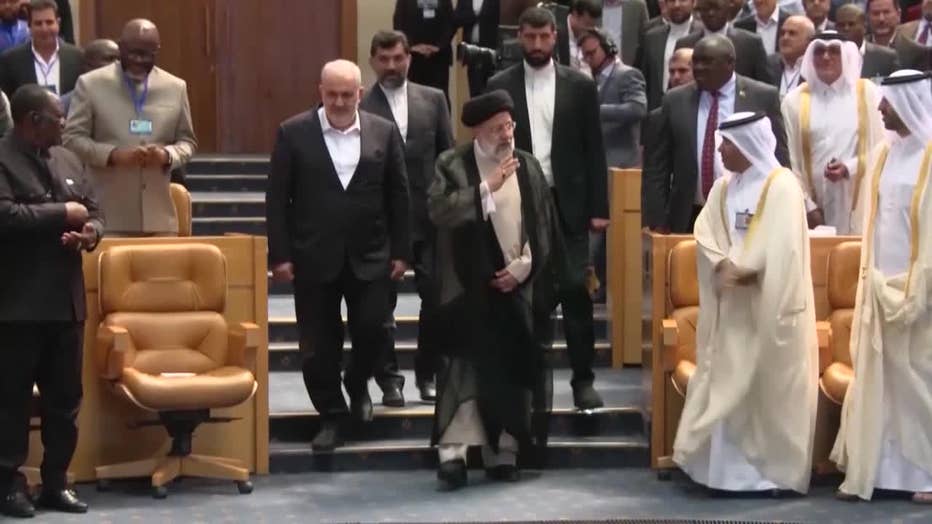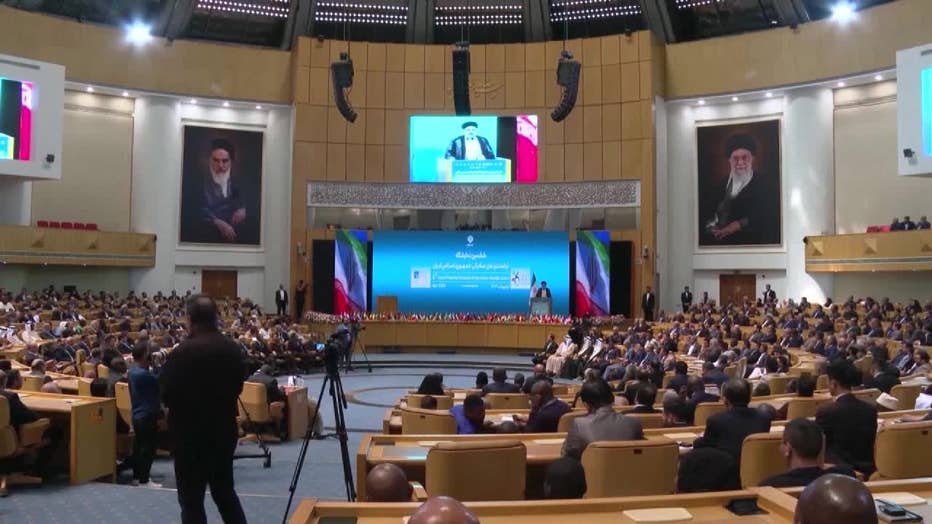Bay Area Iranian Americans hope for change with death of Iran's President
Iranian American group hopes for change with sudden death of Iran's President Raisi
Bay Area Iranian Americans reflect on the sudden death of Iran's President Ebrahim Raisi in Sunday's helicopter crash, and the impact it could have on Iran and the U.S. from across the Bay Area.
OAKLAND - Bay Area Iranian Americans who fled from the hardline leadership of Iran's Shah and later the religious clerics were not mourning the death of Iran's President Ebrahim Raisi on Monday.
Video released by Iranian state media showed search crews recovering the bodies of Raisi, the foreign minister, and others killed in Sunday's helicopter crash in Iran's East Azerbaijan province.
"What we feel is with Raisi out of the picture, the regime who is at war with its own people is going to be weaker," said Bay Area resident Hamid Azimi who is with the Iran American Community of Northern California.
Azimi is an expat who feels the personal pain, remembering Raisi's role in the execution of thousands of Iranian dissidents in the 1980s.
"In the summer of 1988, I had cousins who were arrested and put in prison for many years. I had schoolmates who were executed," Azimi said.
On Monday evening, dozens of Iranian expats gathered at the Emeryville Marina Park with flags and sweets, hoping that the change in leadership might inspire Iranian people to push for more freedoms.

The crash happened in dense fog and came as a shock to Iran's regime.
Raisi, was the 63-year-old protege of Iran's Supreme Leader, the Ayatollah Ali Khamenei.
"He was considered to be a potential successor to the Supreme Leader," said Mahmood Monshipouri, a San Francisco State University Professor and UC Berkeley lecturer.
Professor Monshipouri says Raisi was a right-wing leader, known for his hardline crackdowns on Iranian opponents.
Monshipouri said Raisi had low support among the Iranian people, particularly in Tehran.
"Only 7 to 8% of them participated in the parliamentary election which indicates how poorly the regime is performing," Monshipouri said.
The United Nations Security Council held a moment of silence Monday. The U.S. State Department sent official condolences, but added, "we reaffirm our support for the Iranian people and their struggle for human rights and fundamental freedoms."
Also killed in the crash was Iran's Foreign Minister Hossein Amirabdollahian. University of San Francisco Professor of Middle East Policy Stephen Zunes met him during a visit to Iran in 2019.

"He was strident...had a combined as very fundamentalist hardcore view of Shia Islam with a very, very strong nationalist sense about Iran, that he thought it was better for the Iran to go alone, even if it meant suffering international sanctions," Zunes said.
Elections have been scheduled for June 28th, however with no opposition party within Iran, many scholars say it is unlikely the next president will result in significant changes to Iran's policies or U.S.-Iran relations.
"The most powerful centers of power in Iran rest with the Supreme Leader and revolutionary guard, so not much should be anticipated to change," Monshipouri said.

